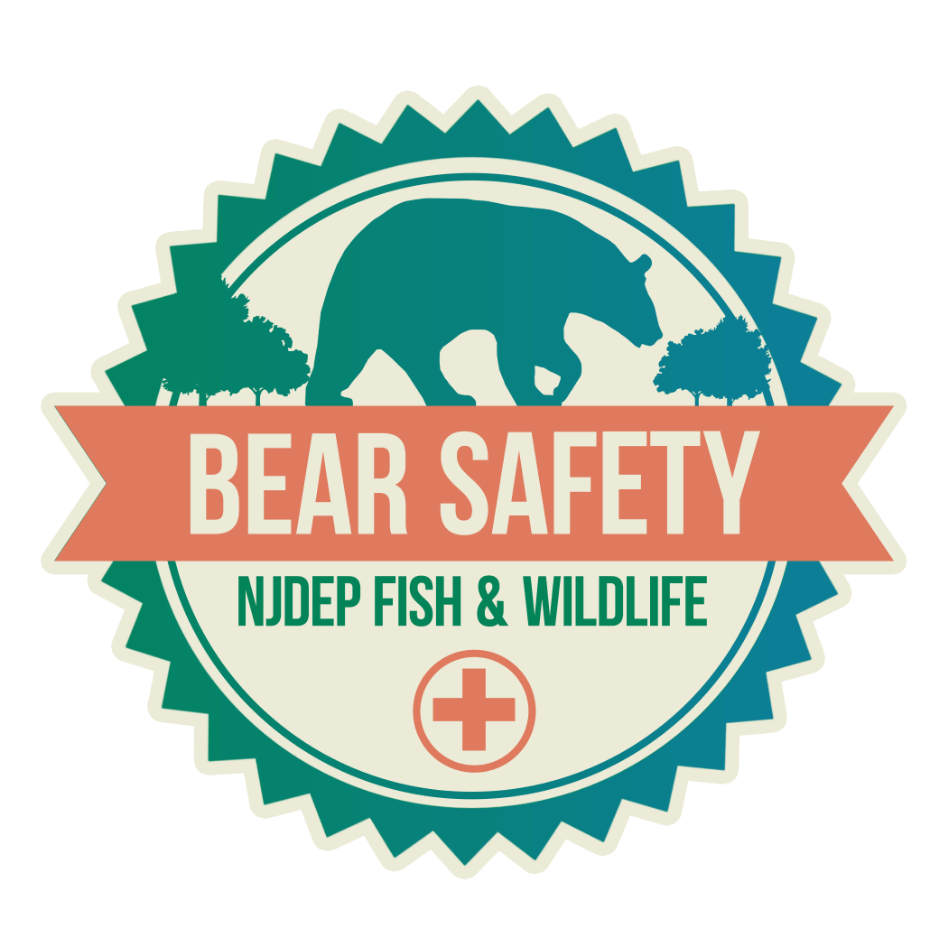Wildlife Safety
We live in a community that is teaming with wildlife, including black bear, snakes and more. Please follow these common-sense safety tips.
The following information is from the New Jersey Department of Environmental Protection website.
Bear Encounters

Black bears by nature tend to be wary of people. However, if you encounter a black bear in your neighborhood or outdoors while hiking or camping, follow these common-sense safety tips.
DON'T
- Do not feed bears.
- Do not approach bears. Especially feeding bears, which will aggressively defend their food.
- Do not run from bears. Running may trigger a chase response.
- Do not make direct eye contact. Bears may perceive this as a challenge.
DO
- Remain calm and slowly back away.
- Make the bear aware of you.
- Be loud: speak in an assertive voice, yell, sing, or clap your hands. If available, bang pots and pans or use an airhorn.
- Make yourself look big. Wave your arms. Hold your jacket above your head.
- If you're in a group, stay together and perform these actions together.
- Make sure the bear has an escape route. If a bear enters your home, prop all the doors open.
- If the bear doesn't leave, move to a secure area.
- If your family lives in an area frequented by black bears, create a "Bear Plan" for children, with an escape route and planned use of whistles and air horns.
- Black bear attacks are extremely rare. If a black bear does attack, fight back! Aim for the snout and/or eyes. Use anything at hand: (knife, sticks, rocks, binoculars, backpack or kick the bear).
- -Report black bear damage or nuisance behavior to the DEP's 24-hour, toll-free hotline at 1-877-927-6337 (1-877-WARN DEP).
REMEMBER
- The bear may utter a series of huffs, make popping sounds by snapping its jaws and swat the ground. These are warning signs that you are too close. Slowly back away, avoid direct eye contact and do not run.
- If a bear stands on its hind legs or moves closer, it may be trying to get a better view or detect scents in the air. It is usually not a threatening behavior.
- Black bears will sometimes “bluff charge” when cornered, threatened, or attempting to steal food. Stand your ground, avoid direct eye contact, then slowly back away and do not run.
Refrence: NJ Fish & Wildlife - Bears.
Snakes Encounters
Despite common fears, snakes in NJ are generally quite harmless and can even be beneficial to have around, as they feed on rodents and invertebrates. Like most wildlife, they do their best to avoid people. This page contains info about our state's diverse snake species and their behaviors, tips to discourage snakes if you're uncomfortable with them being in certain places, and getting help to relocate a venomous snake if found on your property.
Changes you can make to minimize the risk of interacting with a venomous snake in venomous snake territory.
- MOST IMPORTANT: BE AWARE OF YOUR SURROUNDINGS!
- Before letting your dog out in the yard, scan your property (the short grass) for snake presence.
- Watch where you walk. Make sure you can see what's in front of you and what's in front of anything you may step over. If working on a yard project, perhaps surveil your path of travel (a wider path than you'd walk) prior to carrying items that will block your sight. Re-surveil every so often.
- Wear shoes and use a flashlight when walking outside at night. Using the flashlight, scan a wide arc in front of you and along the sides for any venomous snakes that may be taking in the last bits of warmth from a walkway or scent-trailing a rodent.
- Don't reach blindly into vegetation, firewood stacks, or rock/brick piles, etc. Always be sure you can see what's around. When weeding, put a broom handle (or similar item) on the ground within the work area and drag the handle along the ground in wide swaths (“Z's”) to sweep for resting/foraging snakes. If a snake is present, it'll either move away or coil up (likely startling even the most snake-friendly person). You will then - at least - know a snake is present. If you suspect it is venomous, please visit the NJ Fish & Wildlife website for information on what to do if a venomous snake is on your property.
Please know that all of New Jersey's native wildlife (including snakes) are protected under the NJ Endangered and Nongame Species Conservation Act (N.J.S.A. 23:2A et seq.); making it illegal to kill, harm, harass or collect any individual or their parts (e.g., eggshells, snake skins, rattles, etc.).
Refrence: NJ Fish & Wildlife - Snakes.